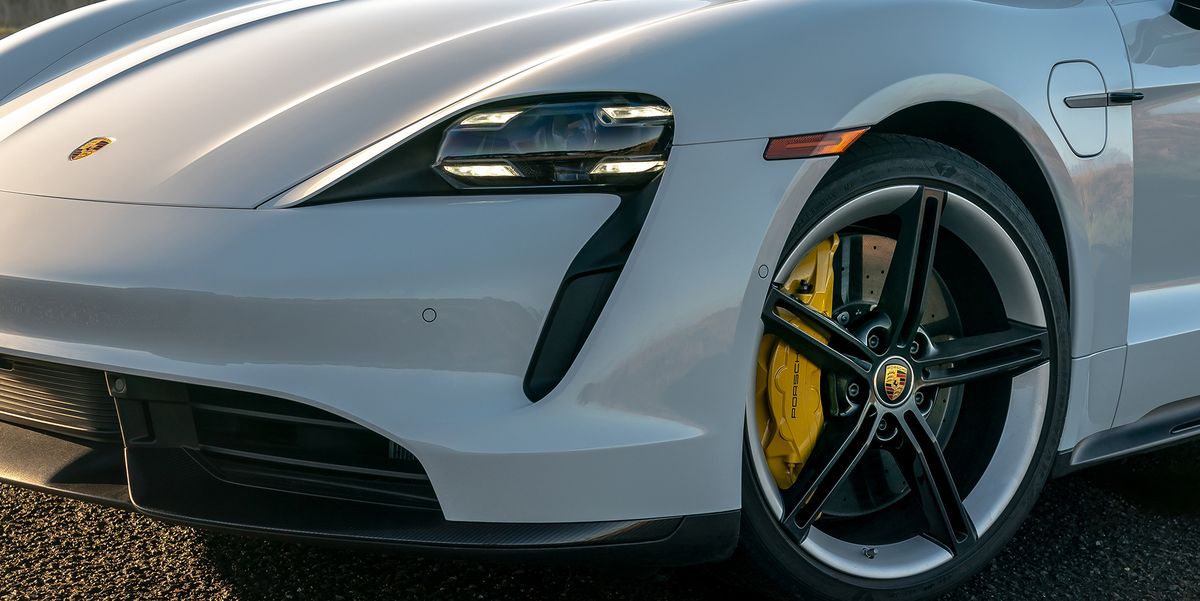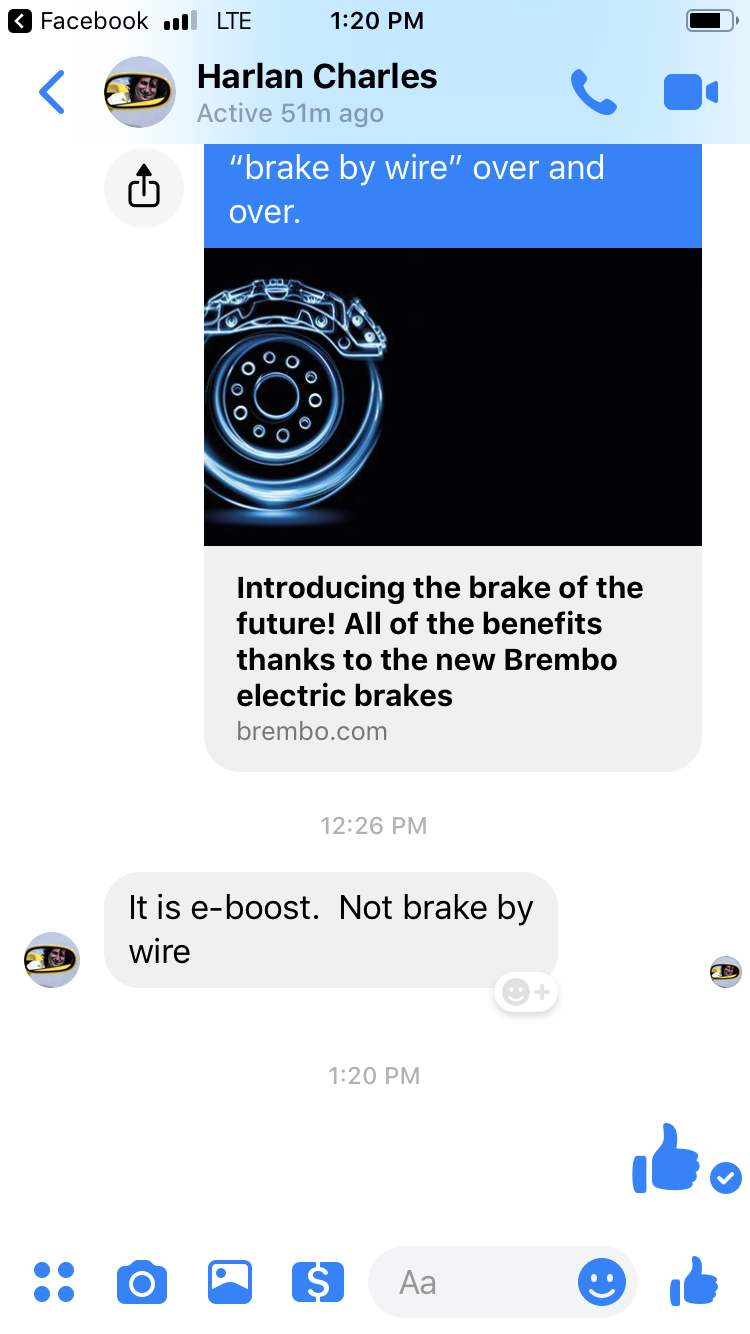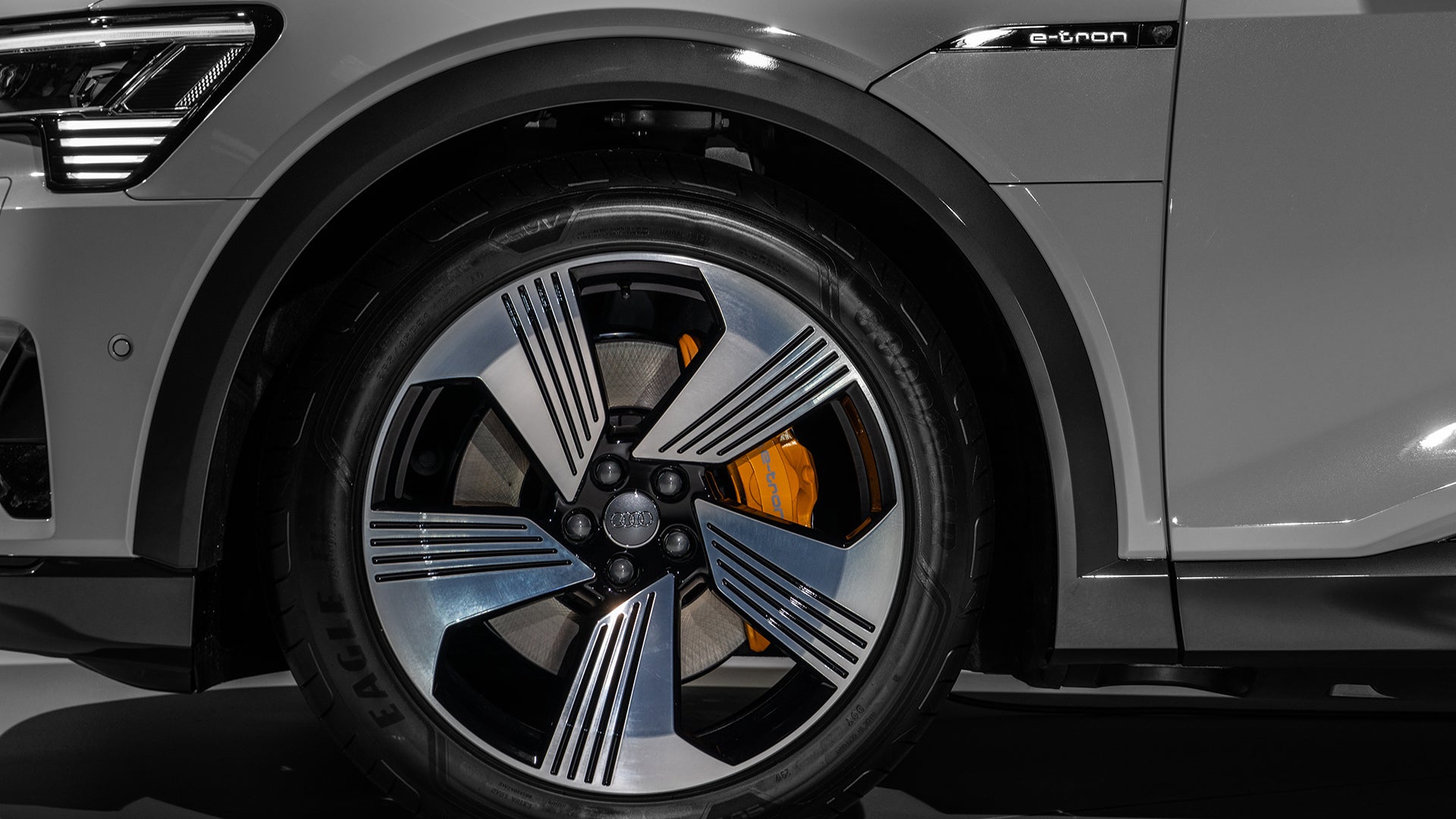Again, FWIW... 6 Cars with Brake By Wire Technology

 www.roadandtrack.com
www.roadandtrack.com

Here's How Brake-by-Wire Works, and Why It's Perfectly Safe
More cars are using brake-by-wire systems. There's no need to be afraid.
You can install our site as a web app on your iOS device by utilizing the Add to Home Screen feature in Safari. Please see this thread for more details on this.
Note: This feature may not be available in some browsers.

Again, FWIW... 6 Cars with Brake By Wire Technology

You can't imagine a system that doesn't use hydraulics?Because I'm not sure you can have "no" hydraulic system and still generate the pressures required for braking.


If the brake pedal does not mechanically actuate the brake system in normal use, that counts as brake-by-wire in my book. Even if the calipers still use hydraulic pressure.The reason I ask is because Audi's "BBW" system has a hydraulic system controlled electronically not by a directly connected to the pedal. (And no, I don't count parking brakes which are not used in motion.)
"In fact, Audi’s new E-tron is the first fully electric vehicle to include brake-by-wire technology...and even there, it comes with an asterisk. While true brake-by-wire systems would use electronically controlled brake calipers instead of hydraulic pressure, Audi’s system is electrohydraulic. There’s still no mechanical link between pedal and pad—save for a redundant backup we’ll discuss shortly—but the actuator on the business end of the brakes remain hydraulic; it's just controlled by the computer in response to the amount of pressure the driver lays on the pedal."

Audi's E-tron Brings a Whole New Type of Brake-By-Wire Tech to the Party
The all-electric SUV's stoppers aren't like anything you've ever set foot on before.www.thedrive.com
Prius, it has a “stroke simulator” to give the feeling of brakes. When you open the door on a Prius if you listen you heat the buzz of an electric pump for a few seconds, thats the brake booster pump pressurizing the brake accumulator, the Prius uses a hydraulic system, but it’s electrically actuated.That article is wrong. The Corvette C8 is not brake by wire.
REAL brake by wire means no mechanical connection between the pedal and the hydraulic system (or no hydraulic system at all).
The C8 is exactly the same as a Tesla. It has an electric brake booster that allows electronic control of hydraulic pressure ALSO, but that does not mean the pedal is not connected to the master cylinder directly.
Here's a whole thread about it, where the lead C8 Product Manager says it's eBoost:

C8 has e-boost NOT brake by wire - confirmed by Harlan Charles - CorvetteForum - Chevrolet Corvette Forum Discussion
C8 General Discussion - C8 has e-boost NOT brake by wire - confirmed by Harlan Charles - Harlan confirms... as Ive been saying... its not Brembos new brake by wire system. The car mags all get it wrong....www.corvetteforum.com
...So.... What car does actually have brake by wire, where the pedal cannot directly create hydraulic pressure?
 priuschat.com
priuschat.com
Are you saying that if the right software fails, the Prius loses all it's braking ability?Prius, it has a “stroke simulator” to give the feeling of brakes. When you open the door on a Prius if you listen you heat the buzz of an electric pump for a few seconds, thats the brake booster pump pressurizing the brake accumulator, the Prius uses a hydraulic system, but it’s electrically actuated.


